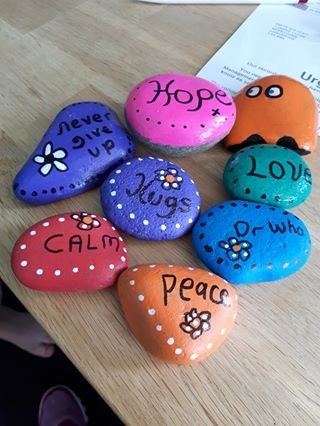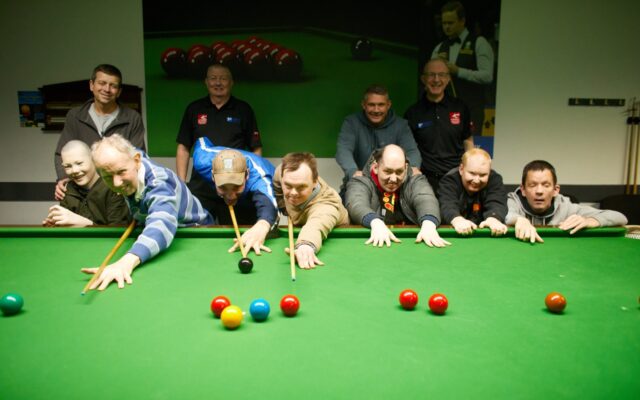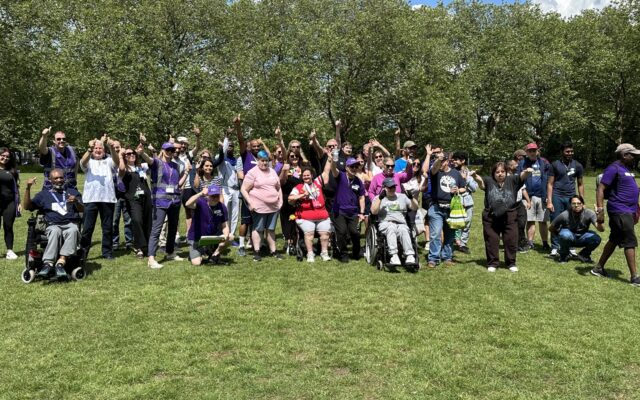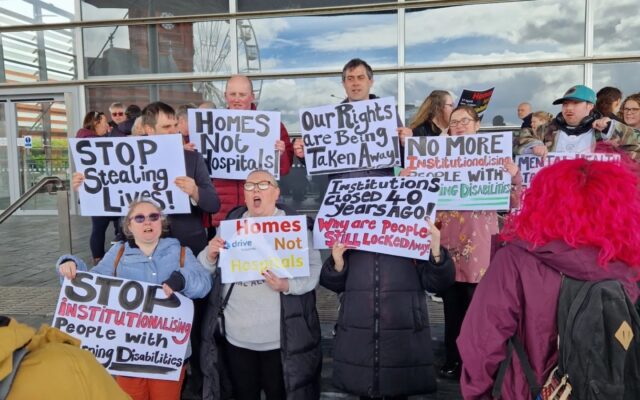Ten years ago, I established a group called Friends and Relationships Out and About (FAR OUT), a group of people with and without learning disabilities who have a passion for community connecting in north Lancashire.
Our aim is to provide sustainable co-produced events in the community for adults with learning disabilities where they can meet and make friends. These are established through “champions”, using strength-based approaches to create a wide range of activities including the Really Enjoyable Dining Society (eating out), an open mic night, a sensory story group and multi-sports sessions, among various other opportunities. The people I have the privilege of working alongside never cease to amaze me with their ideas, kindness and generosity, using their skills, resources and time for others. We are not a charity, nor do we have a budget. We work on friendship and people power alone.
When lockdown started, we had to change what we do and rethink ways of keeping connected. Regular online groups were set up, including our legendary cinema club and a new Big Quiz night; we continued our bereavement support group. We threw birthday parties, and this led to us to discovering how to host Zoom discos.
Through moving activities online, the group has grown not only in numbers but also in friendship, care and love as we discovered more about people’s gifts, skills and knowledge. As we found out more about each other, peer support took on a life of its own, firm friendships were made, and people looked out for each other more.
As James Hughes, team leader at React Self Advocacy in Lancashire, says: “People are appreciating each other more during lockdown.” He reflects that loneliness was common and people were unable to see their families. Lockdown has been a roller-coaster of a journey with highs and lows for most people. We started to identify a trend in declining mental wellbeing among group members a month or so into the pandemic. People were saying, “It really hurts me not to see my friends” and “It feels like I am in prison”. On the video group calls, it was hard not to visibly acknowledge a decline in wellbeing alongside people telling me their mental health issues were becoming exacerbated.
It deeply upset me, so I actively promoted the Action for Happiness monthly calendars (daily actions helping people to be kinder to others and themselves) and regularly posted ideas of things to do on our Facebook page, including a range of online activities.
Pen pals and postcards
Sarah McDermott – a friends and relationships champion who had started writing to friends – and I discussed how we could help people not connected online. We decided to start a pen pal scheme.
Keeping Connected was born and we advertised it as a way of linking people together by writing or phoning each other. In the space of one month, we had more than 60 pairs of people connecting from not only Lancashire but also as far as Kent, Cumbria, Yorkshire and Birmingham, with individuals, friends and social workers enquiring about a pen or phone pal. People started phoning or writing and sending postcards, letters and cards, sometimes including wonderful photographs or beautiful examples of their art and craft. This included handmade cards, friendship bracelets and encouraging messages using pebble art.
We discovered, as Shaun Webster says in Saba Salman’s anthology Made Possible (pages 16-17): “Lots of people with learning disabilities have hidden skills.” We also rediscovered the joy and excitement of expecting something in the post.
Through the weeks of isolation, I have felt really supported and loved by my pen pal, who has written week in week out and sent me photographs of friends from our group to cheer me up. I have unexpectedly gained a new friend. The connection we have grown is significant. What is even more significant is that a wonderful, kind person who happens to have a learning disability has helped me through the toughest days. Many people would not expect this. As Sarah Gordy says, also in Made Possible: “It’s time to see people with a learning disability for all they are and all they can be.”
Being involved in the FAR OUT group has supported people’s relationships, helped improve their self-care and enabled others to “take their mind off everything”. Friends from the group have said that writing to others “kept them going” during lockdown. New friends have been made and communication skills gained demonstrating the massive life-changing potential of a group of people whom many in society would undermine, write off or, as per recent government pandemic policy, ignore.
There has been a burgeoning of kindness and the use of gifts and skills in an unprecedented way during lockdown. The friends in the group have created ways of keeping connected which have delighted and surprised me.
I am a better person and have grown through knowing this group. I have also learnt more about building community and friendships through their setting amazing examples, especially during lockdown.
● Action for Happiness monthly calendars: www.actionforhappiness.org/calendars




